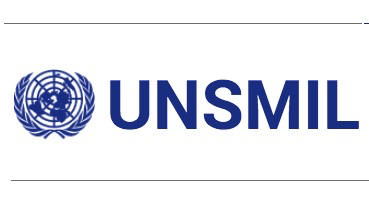FREE FLOW OF INFORMATION
An article from the United Nations Support Mission in Libya
180 Libyan youth are to take part in an initiative for promoting positive peace, through new funding totalling 545,000 USD provided by the Italian Government to UNICEF in the context of the Nicosia Initiative.
“Young people in Libya represent over half of the population and are key to rebuilding the peaceful future of the country” said Abdel-Rahman Ghandour, UNICEF Special Representative to Libya. “We are thankful to the Government of Italy for their generous donation enabling us to support them achieve just that,” he added.

“Young people in Libya represent over half of the population and are key to rebuilding the peaceful future of the country” said Abdel-Rahman Ghandour, UNICEF Special Representative to Libya. “We are thankful to the Government of Italy for their generous donation enabling us to support them achieve just that,” he added.
Taking place in March and April, the initiative will bring together Libyan young local community leaders from throughout the country, to foster a convergence of views and inspire a culture of peace and reconciliation at a time where conflict and violence have caused deep degradation of the environment in Libya.
Aged between 18 and 25, young people from across the country will participate in the initiative through an open and transparent selection process carried out by the Nicosia Initiative working with the Union of Libyan Youth, universities and active civil society networks. Female participation, in particular, are strongly encouraged with representation from all areas of the country actively promoted.
Based on the Institute of Economics and Peace’s [IEP] Positive Peace Framework, the initiative will encourage Libyan youth to look forward to the future instead of looking back at the differences of the past through learning about their rights. Local ownership and leadership have been shown to be a critical factor in building peace and as such, participants will be asked to think and develop innovative community development projects that reflect these ideas and values.
After attending a training, participants will be encouraged to start campaigning to raise awareness in their communities about positive peace. A joint UNICEF, IEP panel will also select the most innovative projects to be funded and implemented at a local level in Libya.
The initiative builds on the achievements made in a pilot conducted earlier in 2017 under the UNICEF programme” Towards Resilience and Social Inclusion of Adolescents and Young People in Libya” through funding from the European Union. Many of the 17 youth who participated in this workshop have gone onto much success, for example through setting local radio station in Sirte, developing local youth networks and campaigning within their communities for peace. By scaling up this initiative in 2018, UNICEF, the Government of Italy, IEP and the Nicosia Initiative hope to enable Libyan youth to build a better and more peaceful future for all.
(Article continued in right column)
Question related to this article.
What is the United Nations doing for a culture of peace?
(Article continued from left column)
Notes to Editors
About the Nicosia Initiative
In 2015, the European Committee of the Regions (CoR) began helping Libyan mayors to foster contacts with EU institutions and European mayors, including granting Libya observer status at the Euro-Mediterranean Regional and Local Assembly (ARLEM). This was in line with the central role of Ms. Federica Mogherini, the High Representative of the European Union for Foreign Affairs and Security Policy.
Following a letter to the CoR President in which Libyan mayors expressed the need for cooperation, a call for European and Mediterranean partners to share their know-how with Libyan authorities was launched at the ARLEM plenary session on 19 January 2016 in Nicosia, Cyprus, under the patronage of the Mayor of Nicosia. Consequently, CoR members began providing very practical support to Libyan cities through the Nicosia initiative – a platform run under the political umbrella of the CoR – with the aim of fostering territorial cohesion and cooperation among Libyan municipalities as well as supporting partnership building between Libyan and European peer institutions based on Libyan local strategic priorities and a set of common shared interests.
The requests for cooperation included in particular actions on services of general interest normally provided by local authorities to citizens and currently not fully performed due to the lack of budget and skills. The Libyan Mayors also pointed out a specific action on youth and mind-set change, as an urgent matter to be addressed
About Institute for Economics and Peace
The Institute for Economics and Peace (IEP) is an independent, non-partisan, non-profit think tank dedicated to shifting the world’s focus to peace as a positive, achievable, and tangible measure of human well being and progress.
IEP achieves its goals by developing new conceptual frameworks to define peacefulness; providing metrics for measuring peace; and uncovering the relationships between business, peace and prosperity as well as promoting a better understanding of the cultural, economic and political factors that create peace.
IEP has offices in Sydney, New York, Mexico City, Brussels and The Hague. It works with a wide range of partners internationally and collaborates with intergovernmental organisations on measuring and communicating the economic value of peace.